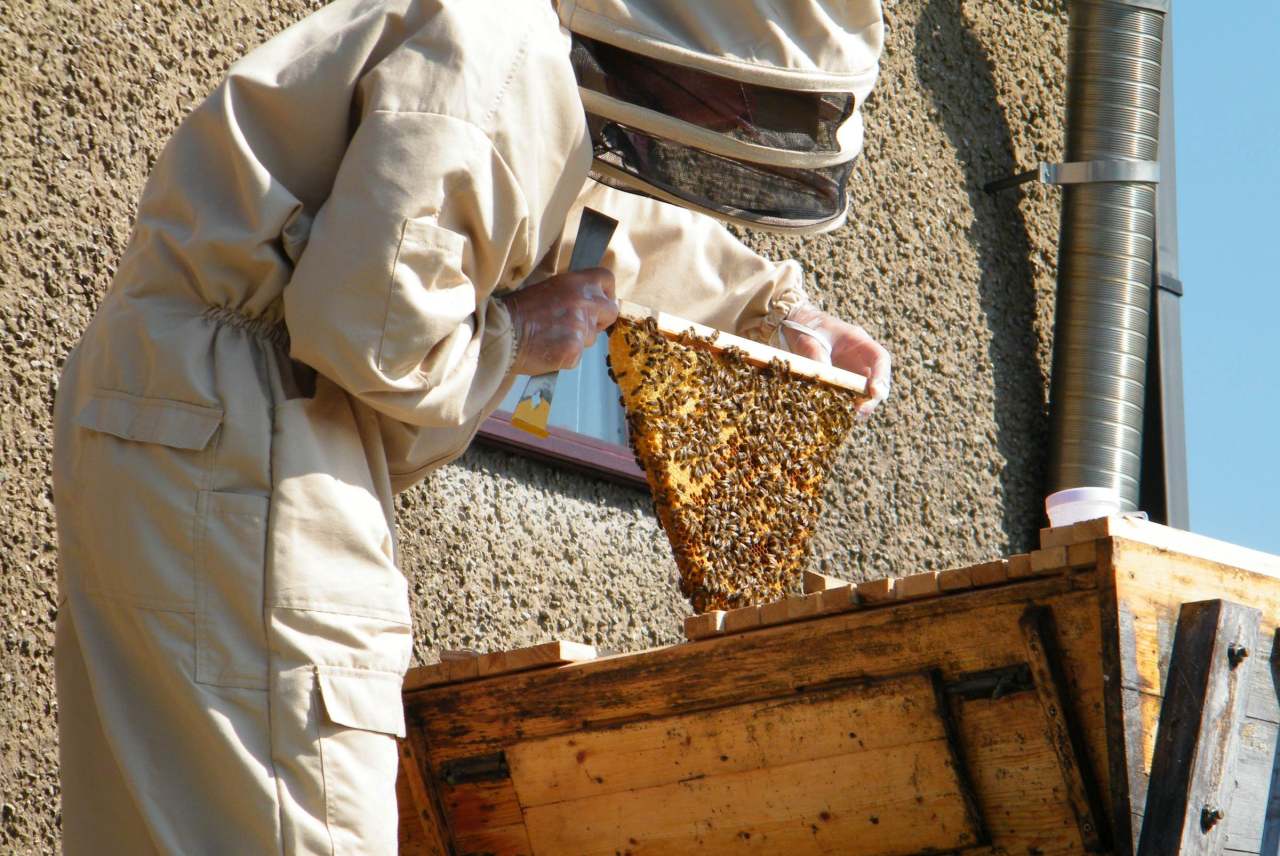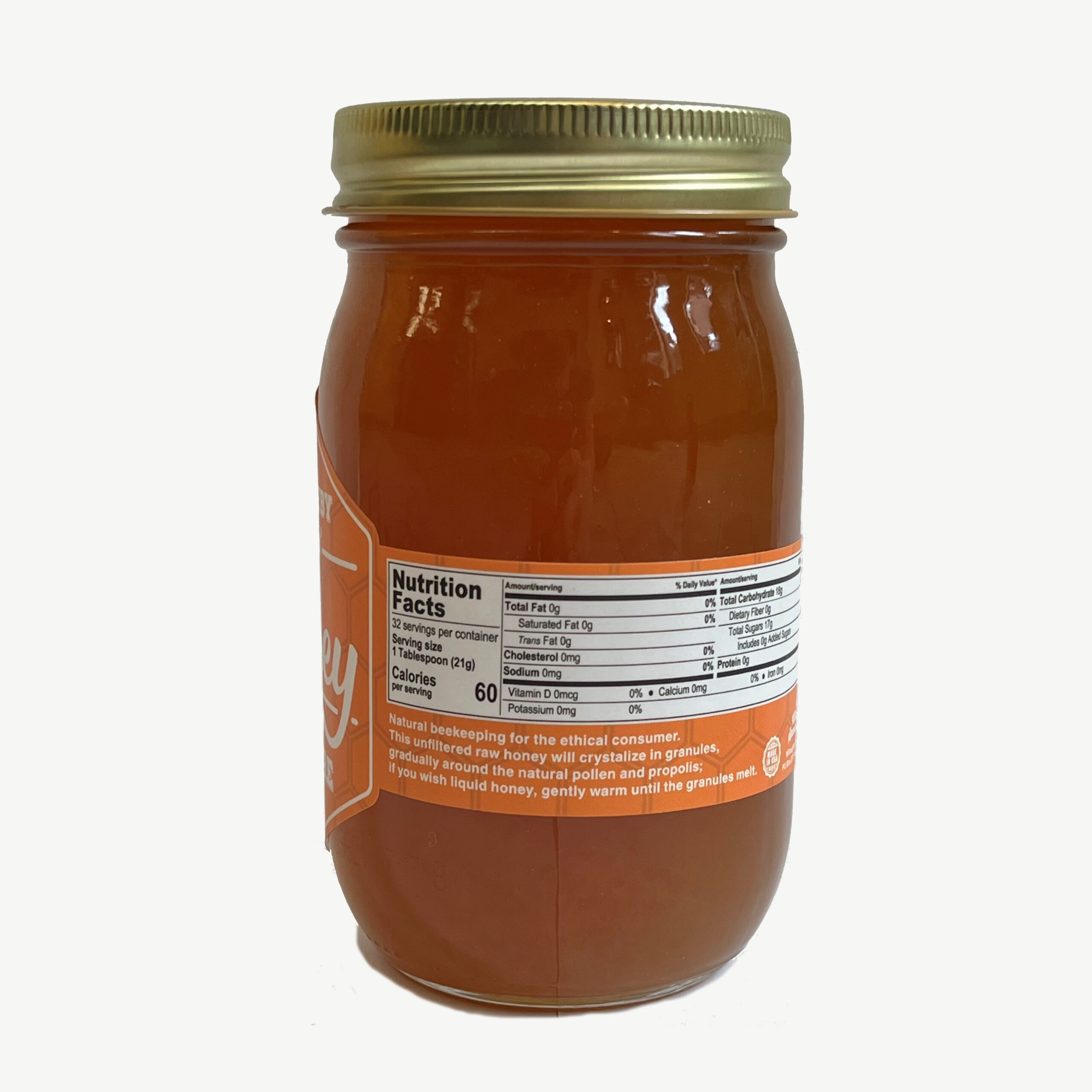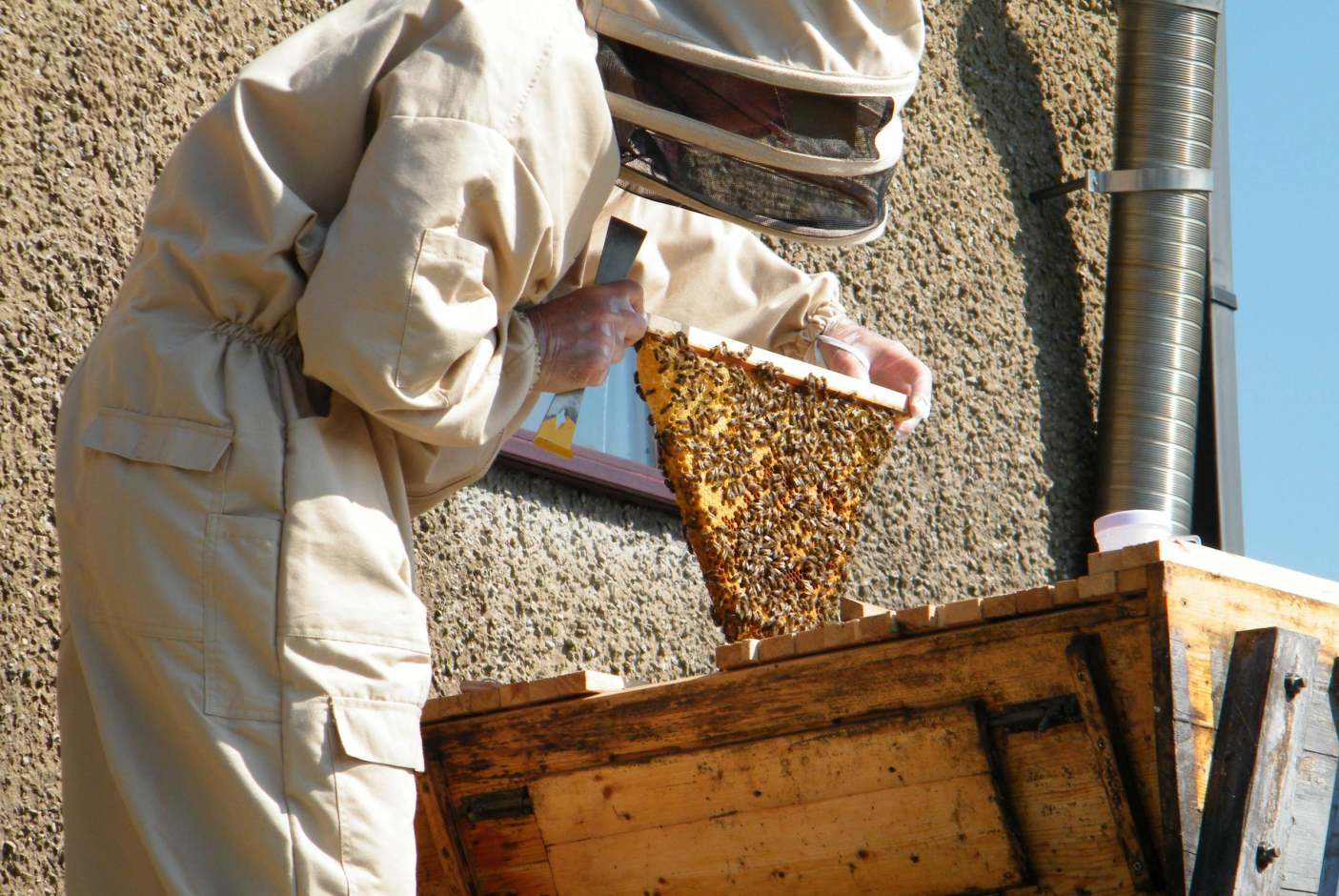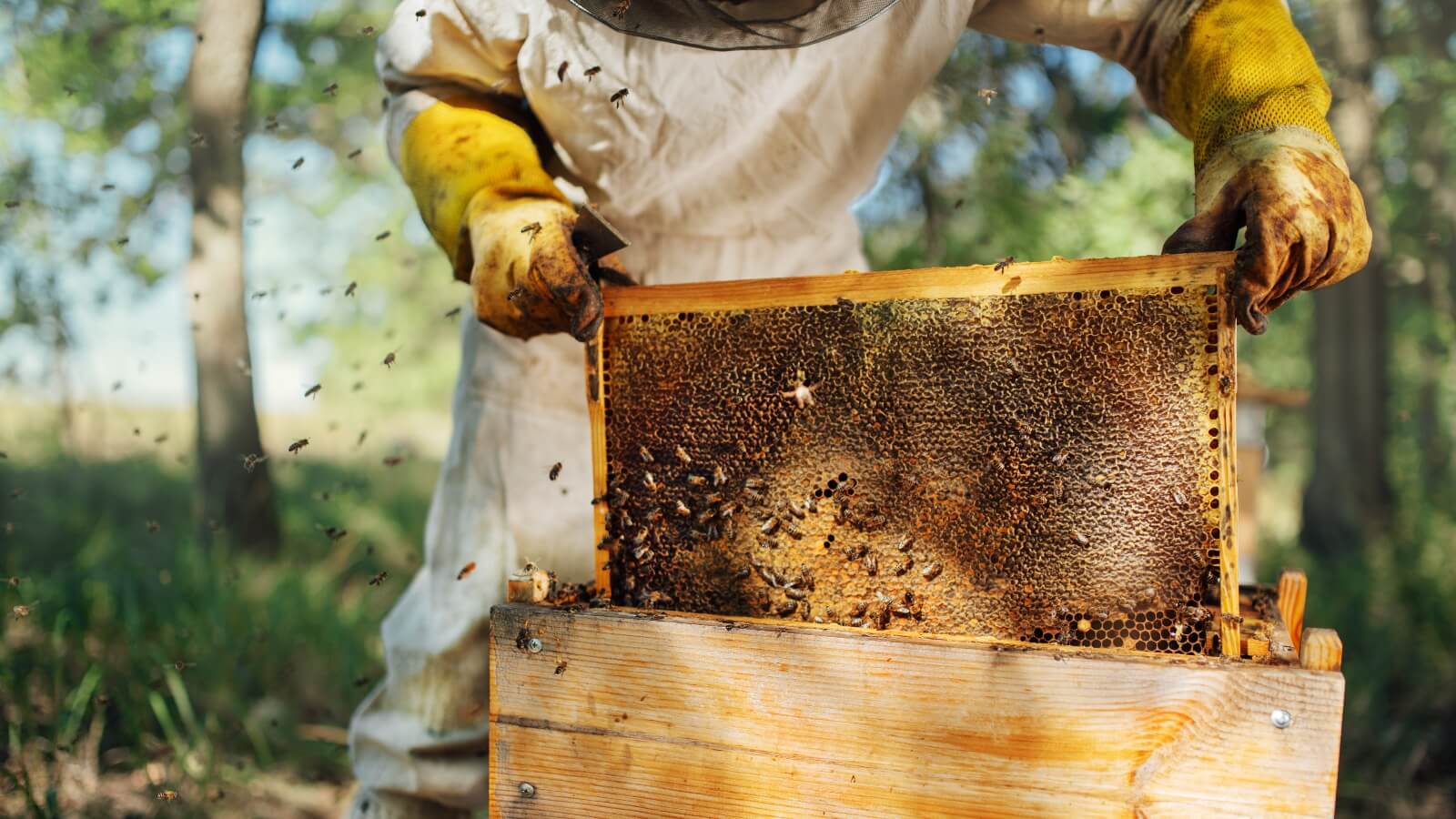Contents
- I. Introduction to Beekeeping and Ethical Consumerism
- II. The Importance of Bees in Ethical Consumerism
- III. Sustainable Beekeeping Practices for Ethical Consumerism
- 1. Organic Apiaries: Promoting Natural Bees’ Habitat
- 2. Hive Design Optimization: Enhancing Bee Health and Productivity
- 3. Integrated Pest Management (IPM): Balancing Pest Control
- 4. Pollinator-Friendly Landscaping: Nurturing Diverse Forage Sources
- 5. Education and Community Engagement: Spreading Awareness
- IV. Organic Honey Production and its Role in Ethical Consumerism
- V. Supporting Local Beekeepers for Ethical Consumerism
- VI. The Impact of Beekeeping on Biodiversity and Ecosystems
- VII. Frequently Asked Questions about Beekeeping and Ethical Consumerism
- 1. How does beekeeping contribute to ethical consumerism?
- 2. Are there any negative impacts of commercial beekeeping?
- 3. How can I support local beekeepers?
- 4. Is organic honey more ethical than conventional honey?
- 5. What are some alternative sweeteners I can use instead of honey?
- 6. Can I keep bees in an urban area?
- 7. How can I create a bee-friendly garden?
- 8. What are some organizations working towards ethical beekeeping?
- 9. How does supporting ethical honey benefit the environment?
- 10. Can I make a difference as an individual consumer?
I. Introduction to Beekeeping and Ethical Consumerism

Welcome to the fascinating world of beekeeping and ethical consumerism! In recent years, there has been a growing awareness of the importance of bees in our ecosystem and the need for sustainable practices when it comes to honey production. As a result, more people are becoming interested in beekeeping as a rewarding hobby and as a way to support ethical consumerism.
Beekeeping, also known as apiculture, is the practice of maintaining colonies of bees in man-made hives. It involves caring for these incredible insects and harvesting their honey while ensuring their well-being and survival. Beekeepers play a critical role in pollination, which is vital for the growth of plants and food production.
1. The Benefits of Beekeeping
Beekeeping offers numerous benefits both for individuals and the environment. Firstly, it provides an opportunity to connect with nature on a deeper level by observing these industrious creatures at work. It can be incredibly satisfying to witness how bees build their intricate honeycombs or see them diligently collecting nectar from flowers.
Moreover, beekeepers can enjoy fresh organic honey right from their own hives – an unprocessed natural sweetener that is not only delicious but also packed with health benefits such as antibacterial properties and antioxidants.
Additionally, through pollination activities carried out by bees, beekeepers contribute directly to supporting biodiversity by helping plants reproduce effectively.
2. Ethical Consumerism: What It Means
Ethical consumerism refers to making conscious purchasing decisions that align with your values regarding social justice, environmental sustainability, animal welfare or other ethical concerns. When it comes to honey consumption specifically, ethical consumers are increasingly seeking out products that are produced using environmentally friendly practices without harming bees or their habitats.
By engaging in beekeeping, individuals can not only ensure that the honey they consume is ethically sourced but also actively contribute to sustainable honey production. This means avoiding the purchase of honey from commercial producers who may use harmful chemicals or engage in practices that harm bees.
Beekeeping provides an alternative for those who want to support ethical consumerism by having direct control over the quality and origin of their honey. It allows people to be more mindful about where their food comes from and make informed choices that promote sustainability and protect our precious pollinators.
II. The Importance of Bees in Ethical Consumerism

Bees play a crucial role in ethical consumerism, impacting various aspects of our lives and the environment. From pollination to honey production, their contribution is invaluable. Understanding the significance of bees can help us make more informed choices as ethical consumers.
Pollination and Biodiversity
One of the primary roles bees perform is pollination, aiding in the reproduction of flowering plants. As they collect nectar from flowers, they unintentionally transfer pollen from male to female plant structures, allowing for fertilization and seed production. This process enables plant diversity and helps sustain ecosystems.
Without bees’ pollination services, many fruits, vegetables, nuts, and seeds would be scarce or disappear entirely. Ethical consumers recognize this vital role and prioritize supporting bee-friendly practices that preserve biodiversity.
Honey Production and Sustainable Farming
Beekeeping not only benefits bees but also contributes to sustainable agricultural practices. Honey production relies on responsible beekeeping methods that prioritize the health and well-being of bee colonies. Ethical consumers seek out honey products sourced from local beekeepers who prioritize sustainability.
Sustainable farming practices ensure that bees have access to a diverse range of flowering plants throughout the year without exposure to harmful pesticides or chemicals. By choosing ethically produced honey products, consumers support these environmentally conscious farmers who strive to protect both bees and their habitats.
Beeswax Products: Natural Alternatives
In addition to honey production, ethical consumerism embraces other bee-related products like beeswax candles or cosmetics made with natural ingredients derived from beehives. These items provide eco-friendly alternatives compared to synthetic counterparts often made using non-renewable resources or chemical additives.
By opting for beeswax-based products, consumers promote sustainable beekeeping practices and contribute to the preservation of bees’ habitats. They also enjoy high-quality goods that are free from harmful chemicals, aligning with their commitment to a more ethically conscious lifestyle.
Supporting Local Beekeepers
Another way ethical consumerism supports bees is through actively engaging with local beekeepers. By purchasing honey or other bee-related products directly from these keepers, consumers can learn about their practices and support small-scale, community-driven initiatives.
These interactions provide an opportunity for consumers to understand the challenges faced by beekeepers and gain knowledge about the importance of preserving bees’ health. Through supporting local beekeepers financially, ethical consumers help sustain their efforts in maintaining healthy colonies and promoting responsible environmental stewardship.
In conclusion, incorporating ethical consumerism involves recognizing the significance of bees in various aspects of our lives. From pollination to honey production and the use of natural alternatives like beeswax products, making informed choices as ethical consumers helps protect these vital insects and their ecosystems. Supporting sustainable farming practices and engaging with local beekeepers are essential steps towards ensuring a thriving future for both humans and bees alike.
III. Sustainable Beekeeping Practices for Ethical Consumerism

Beekeeping has gained significant attention in recent years, not only for its role in honey production but also for its impact on the environment and ethical consumerism. As more people become aware of the importance of sustainable practices, beekeepers are adopting various techniques to ensure their operations align with these values.
1. Organic Apiaries: Promoting Natural Bees’ Habitat
One sustainable practice is establishing organic apiaries that prioritize providing a natural habitat for bees. Instead of using synthetic pesticides or chemical treatments, organic beekeepers focus on creating an environment free from harmful substances, allowing bees to thrive naturally. By avoiding chemicals that can harm both bees and other pollinators, organic apiaries contribute to the preservation of biodiversity.
2. Hive Design Optimization: Enhancing Bee Health and Productivity
Hive design plays a crucial role in maintaining healthy bee colonies and maximizing productivity. Sustainable beekeepers opt for modern hive designs that provide adequate ventilation, insulation, and space while minimizing stress on the bees during inspections or honey harvesting. These optimized hives help reduce diseases and pests while promoting overall colony strength and resilience.
3. Integrated Pest Management (IPM): Balancing Pest Control
Sustainable beekeepers employ Integrated Pest Management (IPM) strategies to control pests without relying solely on chemical treatments. IPM combines various methods such as regular monitoring, biological controls like predator insects or mites-resistant queen breeds, cultural practices including proper hive hygiene management, and mechanical interventions like screened bottom boards or drone brood removal – all designed to minimize pest damage while prioritizing long-term health sustainability.
4. Pollinator-Friendly Landscaping: Nurturing Diverse Forage Sources
Supporting a diverse range of forage sources is vital for bee health and overall ecosystem balance. Sustainable beekeepers actively participate in pollinator-friendly landscaping by planting native flowering plants, creating green spaces with blooming trees, and avoiding the use of herbicides or pesticides harmful to bees. By providing abundant and varied nectar and pollen sources, they contribute to the well-being of both honeybees and other pollinators.
5. Education and Community Engagement: Spreading Awareness
Sustainable beekeeping practices go hand in hand with education and community engagement. Ethical consumerism is driven by informed choices, so sustainable beekeepers take the initiative to educate consumers about the importance of their practices. They participate in local events, offer workshops or tours at their apiaries, collaborate with schools or environmental organizations, and promote responsible honey consumption – all aimed at raising awareness about sustainable beekeeping’s positive impact on our ecosystems.
By adopting these sustainable practices, ethical-minded consumers can support beekeepers who prioritize not only honey production but also long-term environmental sustainability. The collective efforts towards sustainable beekeeping ensure that future generations can continue to benefit from healthy bees, thriving ecosystems, and delicious honey.
IV. Organic Honey Production and its Role in Ethical Consumerism

In recent years, there has been a growing interest in organic products and ethical consumerism. This trend has extended to the honey industry, with more people opting for organic honey due to its numerous benefits for both the environment and personal health.
The Importance of Organic Certification
When it comes to honey production, organic certification is crucial. It ensures that the honey is free from synthetic chemicals, pesticides, antibiotics, and other harmful substances. Organic beekeepers follow strict guidelines set by regulatory bodies to maintain the natural integrity of their hives and promote sustainable practices.
Promoting Biodiversity
Organic honey production plays a vital role in supporting biodiversity. Bees play a significant role in pollinating flowers and crops, contributing to the growth of various plant species. By avoiding chemical interventions that harm bees or their habitats, organic beekeepers help maintain healthy ecosystems while protecting endangered plant species.
Enhancing Nutritional Value
Organic honey is known for its superior quality and nutritional value compared to conventional alternatives. Bees gather nectar from diverse sources of wildflowers rather than monocrops sprayed with chemicals. As a result, organic honey contains higher levels of antioxidants, enzymes, vitamins, minerals, and beneficial compounds such as pollen grains.
Sustainability Practices
Ethical consumerism emphasizes sustainable practices throughout the supply chain – from hive management to packaging materials used by beekeepers. Organic beekeepers prioritize eco-friendly techniques like natural pest control methods instead of relying on harmful pesticides or antibiotics that can have detrimental effects on bees’ health.
Supporting Local Communities
Choosing organic honey supports local communities and beekeepers who are committed to sustainable practices. By purchasing their products, consumers contribute to the livelihoods of these beekeepers, enabling them to continue their ethical beekeeping practices and maintain healthy honeybee populations.
In conclusion, organic honey production plays a crucial role in ethical consumerism. It ensures the protection of bees and their habitats while promoting biodiversity and sustainable practices. By choosing organic honey, consumers not only enjoy a higher quality product but also contribute to the well-being of both the environment and local communities. Embracing organic honey is an excellent way for individuals to make conscious choices that align with their values while enjoying the many benefits this natural sweetener has to offer.
Note: This response does not contain any HTML tags as it is a plain text representation of the requested content.
V. Supporting Local Beekeepers for Ethical Consumerism
Supporting local beekeepers is not only a way to promote ethical consumerism but also a means of preserving the environment and ensuring the survival of honeybees. By purchasing honey and other bee-related products directly from local producers, you can make a positive impact on both your community and the planet.
1. Why support local beekeepers?
Purchasing honey from local beekeepers helps to support their livelihoods and encourages sustainable practices in beekeeping. Unlike large-scale commercial operations, local beekeepers often prioritize the health and well-being of their bees over maximizing profits.
2. How does supporting local beekeepers benefit the environment?
Local beekeepers typically maintain smaller apiaries, which reduces stress on honeybee populations and allows for more personalized care. They are also more likely to use natural methods of pest control instead of relying heavily on chemical treatments that can harm bees and other pollinators.
3. What are some ways to support local beekeepers?
– Purchase locally-produced honey: Look for labels indicating that the product comes from nearby sources or visit farmers’ markets where you can meet the producers directly.
– Join community-supported agriculture (CSA) programs: Many CSAs include honey as part of their offerings, allowing you to enjoy fresh produce while supporting local farmers.
– Attend educational events: Local beekeeping associations often organize workshops or seminars where you can learn about bees, their importance in ecosystems, and how you can contribute to their conservation.
– Volunteer at apiaries: Some small-scale operations may welcome volunteers who are interested in learning about bees and helping with tasks such as hive maintenance or harvesting honey.
4. Are there any additional benefits to supporting local beekeepers?
By supporting local beekeepers, you can enjoy the unique flavors and varieties of honey produced in your region. Local honey is often praised for its distinct taste, as it reflects the local flora that bees have visited. Additionally, purchasing directly from producers ensures that your honey is pure and unadulterated.
5. How does supporting local beekeepers contribute to ethical consumerism?
Choosing to support local beekeepers aligns with the principles of ethical consumerism by prioritizing sustainable practices, fair trade, and community support. It allows you to make a conscious choice that benefits not only yourself but also the environment and those who dedicate their lives to caring for bees.
In conclusion, supporting local beekeepers is an essential aspect of ethical consumerism. By purchasing honey and other bee-related products directly from these producers, you not only promote sustainability but also contribute to the well-being of bees and foster a stronger connection with your community. Embrace this opportunity to make a positive impact on both environmental conservation and responsible consumption habits.
VI. The Impact of Beekeeping on Biodiversity and Ecosystems
Beekeeping, also known as apiculture, has a significant impact on biodiversity and ecosystems. By fostering the growth and well-being of honeybee colonies, beekeepers play a crucial role in supporting the delicate balance of nature. Let’s explore how beekeeping positively influences biodiversity and ecosystems.
Pollination: A Key Ecological Service
One of the primary contributions that bees make to ecosystems is pollination. As they forage for nectar, bees inadvertently transfer pollen grains from male to female flower parts, enabling fertilization and seed formation. This process is essential for plant reproduction and genetic diversity.
By maintaining healthy colonies near agricultural areas or wild habitats, beekeepers ensure a consistent supply of pollinators. This boosts crop yields, enhances fruit set in orchards, promotes flowering in gardens, and supports the survival of many plant species.
Promoting Plant Diversity
Beekeeping indirectly encourages the preservation of plant diversity within ecosystems. As honeybees visit various plants in search of nectar and pollen sources, they contribute to the dispersal of seeds from different species across vast distances.
This dispersal mechanism helps plants colonize new areas or recover after disturbances such as wildfires or deforestation. Moreover, by facilitating cross-pollination between genetically distinct individuals within plant populations, bees contribute to increased genetic variation among plants.
Conservation Efforts
Beekeepers often collaborate with conservation organizations to protect natural habitats conducive to honeybee health. These efforts involve creating suitable habitats with diverse floral resources that support both native pollinators and managed honeybees alike.
In turn, these conservation initiatives help preserve overall ecosystem health by restoring degraded landscapes through reforestation and promoting sustainable land management practices. By supporting beekeeping, ethical consumers can actively contribute to these conservation efforts.
Enhancing Food Security
Beekeeping plays a vital role in ensuring food security on a global scale. As pollinators, bees directly impact the production of fruits, vegetables, nuts, and seeds – essential components of a healthy diet.
With the decline in wild pollinator populations due to habitat loss and pesticide use, managed honeybees have become even more critical for maintaining stable crop yields. Beekeepers’ efforts to maintain strong colonies help mitigate the negative effects of pollinator decline on food production systems.
VII. Frequently Asked Questions about Beekeeping and Ethical Consumerism
1. How does beekeeping contribute to ethical consumerism?
Beekeeping aligns with ethical consumerism as it promotes sustainable practices, supports local ecosystems, and protects pollinators essential for food production. By purchasing honey and other bee-related products from responsible beekeepers who prioritize the well-being of their bees, consumers can make a conscious choice to support ethical practices.
2. Are there any negative impacts of commercial beekeeping?
Commercial beekeeping can have some negative impacts if not done responsibly. Practices such as over-harvesting honey or using harmful pesticides can harm bees and their natural habitats. It is important for consumers to be aware of these issues and choose products from beekeepers who prioritize sustainability and the welfare of their bees.
3. How can I support local beekeepers?
You can support local beekeepers by purchasing honey, beeswax products, or other items directly from them at farmer’s markets or through community-supported agriculture (CSA) programs. Additionally, you can educate yourself about the importance of sustainable practices in beekeeping and spread awareness among your friends and family.
4. Is organic honey more ethical than conventional honey?
The term “organic” refers to specific farming standards that prohibit the use of certain chemicals in production. While organic certification ensures that no synthetic substances were used during production, it does not necessarily guarantee better treatment for the bees or promote sustainable practices on a broader scale.
5. What are some alternative sweeteners I can use instead of honey?
If you are looking for alternatives to honey due to personal preferences or dietary restrictions, options like maple syrup, agave nectar, or molasses can be used as sweeteners in various recipes. However, it is important to choose products produced sustainably and ethically.
6. Can I keep bees in an urban area?
Yes, beekeeping can be practiced in urban areas with proper planning and consideration for local regulations. Urban beekeeping not only contributes to local honey production but also helps support pollinator populations in cities.
7. How can I create a bee-friendly garden?
To create a bee-friendly garden, you can plant native flowering plants that provide nectar and pollen throughout the year. Avoid using chemical pesticides or herbicides that could harm bees, and provide water sources like shallow dishes with pebbles for them to drink from.
8. What are some organizations working towards ethical beekeeping?
There are several organizations dedicated to promoting ethical practices in beekeeping, such as The Honeybee Conservancy, Pollinator Partnership, and Bee Culture Magazine’s “Ethical Beekeeper” initiative. These organizations offer resources and information on sustainable methods of beekeeping.
9. How does supporting ethical honey benefit the environment?
Supporting ethical honey production benefits the environment by encouraging responsible land management practices that promote biodiversity and protect natural habitats for bees and other pollinators. It helps maintain healthy ecosystems necessary for food production and overall environmental balance.
10. Can I make a difference as an individual consumer?
Absolutely! Every purchase you make has an impact on the market demand for certain products or practices. By choosing ethically produced honey and supporting responsible beekeepers, you contribute to creating a market that values sustainability, biodiversity conservation, and the well-being of bees.

Andrew Boyer is an accomplished individual with a deep-rooted passion for bees and their conservation. Born and raised in a small town in Oregon, Andrew developed an early fascination with nature and the environment. He pursued his education at the prestigious University of Oregon, where he obtained a Bachelor’s degree in Environmental Science with a specialization in Entomology. During his time at university, Andrew conducted extensive research on the behavior and ecological impact of bees, earning him recognition from his peers and professors. His dedication to the field led him to internships at local beekeeping associations, where he honed his skills in hive management and honey production. Andrew’s expertise in beekeeping and his commitment to environmental sustainability make him a valuable asset in the conservation of these vital pollinators.
